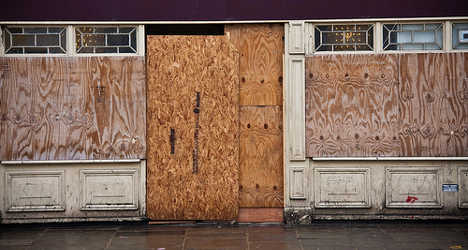According to research by the Chamber of Commerce of Monza and Brianza, around 6,500 businesses filed bankruptcy proceedings with the courts in the first six months of 2013 – 5.9 percent higher than in the same period in 2012.
Around 126,000 businesses have launched legal proceedings related to either failure or bankruptcy in the courts, the chamber said.
And it is not only new businesses that have been hard hit by the slowdown.
Between 2008 and 2012 around 9,000 firms, which had been operating for more than 50 years, closed their doors.
In some regions the rate of collapse was particularly alarming and the highest level was recorded in Lombardy, the region surrounding Milan, where 1400 businesses filed proceedings with the courts in the first half of 2013.
More than half the businesses had been established between 2000 and 2009.
In Tuscany the number of business failures was 33.8 percent higher than last year, while in the southern region of Calabria the rate was up 31 percent.
In the northeast region of Trentino Alto Adige, traditionally an industrial powerhouse, the rate of collapse was up 26.9 percent.
“At this difficult time the country can recover by valuing young entrepreneurs and supporting innovative startups on the one hand and by safeguarding established companies that have led development,” said Carlo Edoardo Valli, the chamber’s president.
“So it’s up to organizations to identify ways and ad hoc initiatives that support company production despite the crisis.”
Last week the eurozone emerged from recession after a record 18 months of economic contraction.
The bloc's GDP grew by 0.3 percent in the second quarter of 2013, slightly ahead of forecasts, the Eurostat agency said.
The growth was fuelled by promising economic activity in Germany while Italy’s GDP slid 0.2 percent in the second quarter of 2013.



 Please whitelist us to continue reading.
Please whitelist us to continue reading.
Member comments